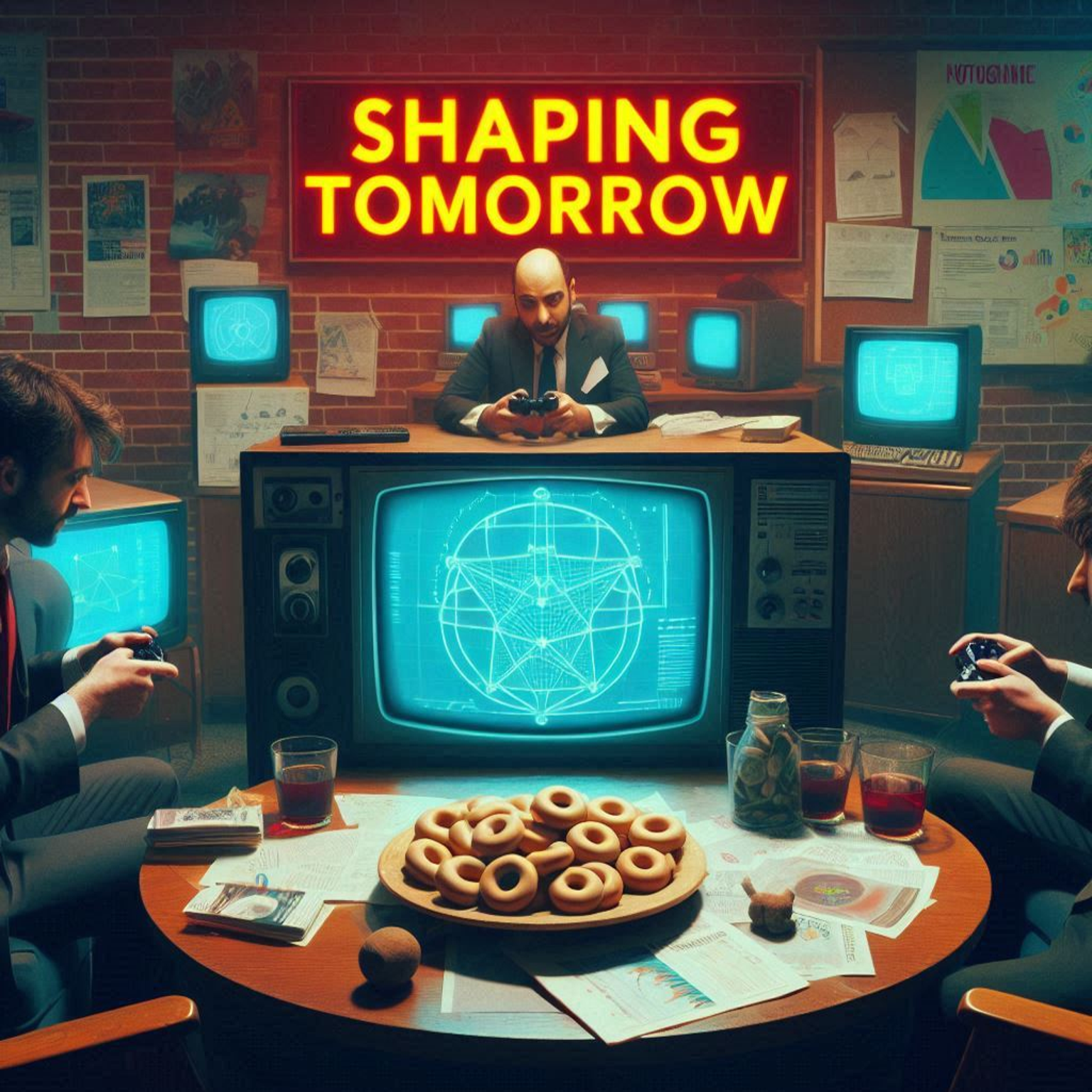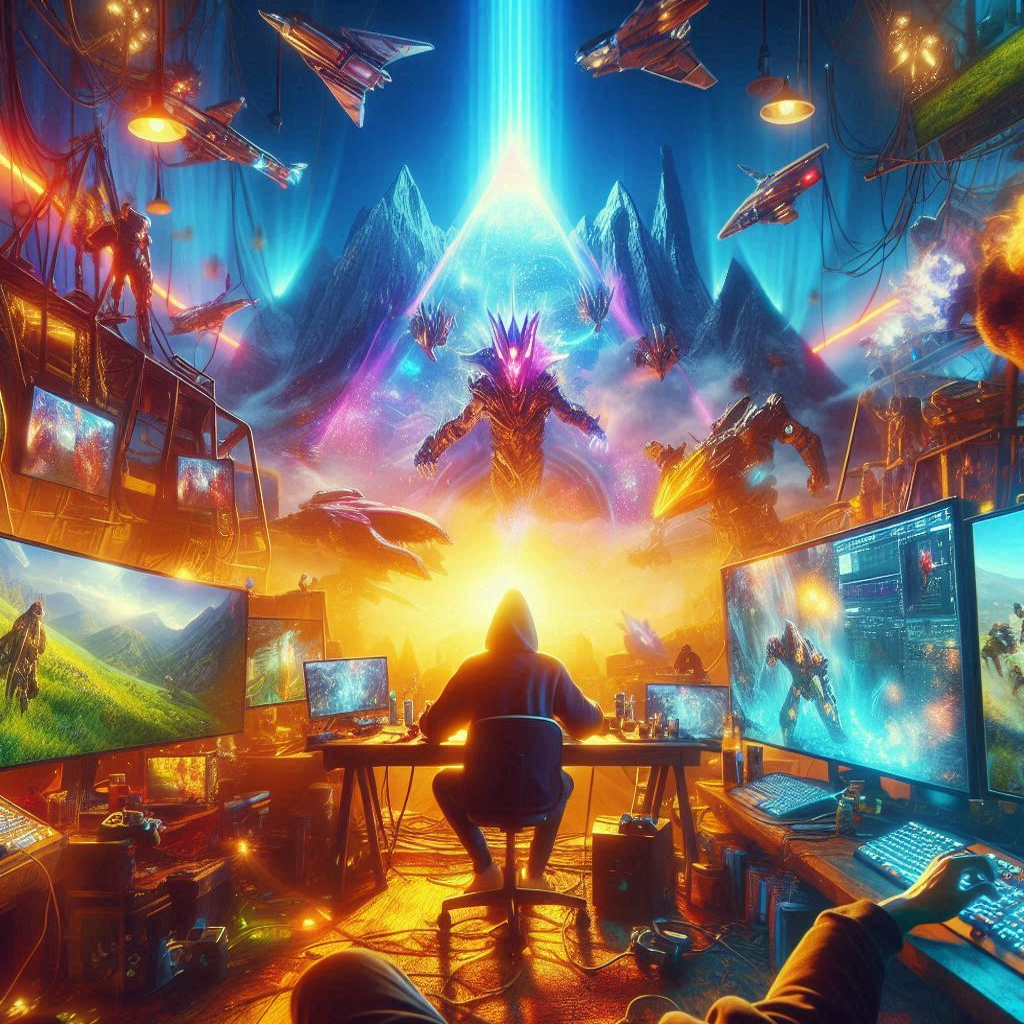In recent years, gambling has become a big part of how many games are made and how they earn money. Game designers often use ideas from gambling to make games more exciting and to encourage players to spend money. This article will explain how gambling affects the way games are designed and the ways they make cash.
First, let’s look at how designers use gambling ideas. They create things like “loot boxes” which are like surprise gifts that players can buy. When players open a loot box, they might get something cool for their character, which makes them want to buy more. This is similar to how people feel when they play slot machines, hoping to win something special.
Next, we have the term “monetization strategy.” This is a plan that game makers use to earn money from their games. Many games now use free-to-play models, where players can start for free, but then they can buy special items or chances to play again. This way, players might feel they need to spend money to enjoy the game more, just like in gambling where people might keep playing to win back lost money.
Finally, it’s important to think about how this influences players. Some people might enjoy the thrill of chance and spend a lot of money on these games, while others might find it hard to stop playing and spending. Understanding how gambling affects game design can help players make better choices and enjoy games in a fun way.
In summary, gambling has a strong effect on game design and how games make money. By using elements like loot boxes and strategic monetization, game designers can create engaging experiences that keep players coming back for more.
The Influence of Gambling on Game Design and Monetization Strategies
Gambling has become a significant factor in the design and monetization of many video games, especially in the mobile and online sectors. Game developers have started to implement aspects of gambling to increase engagement and revenue. This article will explore the problems related to gambling in games, its impact on players, and the various strategies used by developers to monetize their games through these elements.
Understanding Key Terms
- Gambling: The act of betting money or valuables on an event with an uncertain outcome, often involving games of chance.
- Monetization: The process of generating revenue from a product, in this case, video games.
- Microtransactions: Small payments made by players to purchase virtual goods within a game.
- Loot Boxes: In-game items that players can buy or earn, which contain random rewards, often compared to gambling.
- Pay-to-Win: A game design model where players can gain an advantage in the game by spending money.
Problems Associated with Gambling in Games
While gambling elements can enhance player engagement, they also raise several concerns:
- Addiction: Many players develop addictive behavior towards games that incorporate gambling mechanics, leading to financial difficulties.
- Exploitation: Some developers may exploit vulnerable players by designing games that encourage excessive spending.
- Underage Gambling: Games with gambling mechanics can be accessed by younger audiences, posing risks of early exposure to gambling.
Gambling Mechanics in Game Design
Game mechanics that mimic gambling can enhance player experience and increase revenue. Here are some common features:
- Loot Boxes: Players pay for these boxes, which provide random items. Their appeal is similar to lottery tickets.
- Spin Wheels: Players can spin wheels for a chance to win rewards. The thrill of uncertainty attracts more users.
- Daily Rewards: Incentives for players to return daily, which can include gamble-like mechanics for higher-tier rewards.
Monetization Strategies
Developers utilize various strategies to monetize gambling elements:
- In-App Purchases: Players can buy additional items or chances to win. This method has been proven effective in mobile games.
- Advertising: Games may include ads that promote gambling-related products, tapping into the market of interested players.
- Seasonal Events: Time-limited events that incorporate gambling mechanics to drive purchases during specific time frames.
Real-World Perspectives
“The psychological mechanics that make gambling exciting can also hook players into engaging more with a game, which developers increasingly understand.”
“While loot boxes can enhance the excitement of games, they can also lead to significant spending for players, raising ethical questions about game design.”
Ethical Considerations and Possible Solutions
Addressing the problems associated with gambling in games requires a balanced approach. Some potential solutions include:
- Clear Regulations: Implement strict guidelines on how gambling mechanics are integrated into games, particularly for those aimed at younger audiences.
- Transparency: Developers should clearly disclose the odds of winning from loot boxes or spin wheels.
- Support Systems: Providing access to resources for players who feel they may be developing problems related to gambling behaviors.
By focusing on ethical game design, developers can create enjoyable experiences without compromising player well-being. The balance between entertainment and responsibility will determine the future of gambling elements in video games.
| Loot Boxes | An item that players can purchase for a chance to receive random in-game rewards. |
| Spin Wheels | A chance-based mechanic where players can win items by spinning a wheel. |
| Daily Rewards | Incentives that encourage players to log in daily for potential rewards. |
What is the impact of gambling elements on game design?
Gambling elements have a significant influence on game design, often shaping the user experience to enhance engagement and retention. Incorporating mechanics like loot boxes, in-game currency, and randomized rewards can create a sense of excitement and anticipation, similar to traditional gambling. Additionally, these elements can encourage players to spend more time in-game, as they chase after rewards and achievements.
How do monetization strategies benefit from gambling mechanics?
Monetization strategies benefit from gambling mechanics through the creation of a compelling incentive for players to spend money. Features like microtransactions, where players pay for chances to win items or currency, can lead to increased revenue. The thrill associated with gambling can drive players to invest more, as they may feel a higher likelihood of gaining valuable in-game items.
Are there ethical concerns surrounding the use of gambling in games?
Yes, ethical concerns exist regarding the use of gambling in games, particularly regarding the potential for addiction and the targeting of vulnerable populations, including minors. Game developers face scrutiny regarding transparency, as players may not fully understand the odds of winning in-game rewards. There is an ongoing discussion about the need for regulations to ensure fair practices in in-game monetization.
What are some common gambling mechanics used in game design?
Common gambling mechanics include loot boxes, spin-to-win wheels, and scratch cards. These elements offer random rewards, creating excitement among players. Additionally, some games implement progression systems where players can gamble in-game currency for a chance to unlock exclusive content, further enticing them to spend more time and money within the game.
How do players typically react to gambling features in games?
Player reactions to gambling features can vary widely. Some players enjoy the thrill and excitement these mechanics bring, appreciating the chance to acquire rare items. Others may express frustration over perceived unfairness or the pressure to spend money to compete. Developers must balance these features to maintain engagement while also considering player sentiment and ethical implications.
Are there successful games that have effectively integrated gambling mechanics?
Yes, several successful games have effectively integrated gambling mechanics, such as mobile games that feature loot boxes, or titles that include in-game casinos. These games often report high levels of engagement and profitability due to their immersive experiences and the allure of potential rewards. However, the integration must be handled carefully to avoid backlash from the gaming community.
What regulations exist regarding gambling in video games?
Regulations regarding gambling in video games vary by region. Some countries have stringent laws governing loot boxes and other gambling-like mechanics, requiring clear disclosures about odds and ensuring that underage players cannot access these features. Developers must stay informed about local regulations to ensure compliance and mitigate legal risks.
How can developers balance fun and monetization when incorporating gambling elements?
Developers can balance fun and monetization by ensuring that gambling elements enhance the gameplay experience rather than detract from it. This involves creating a fair system where players feel rewarded without feeling exploited. Transparent communication about the mechanics and providing alternative ways to earn rewards can help maintain player trust and satisfaction.








